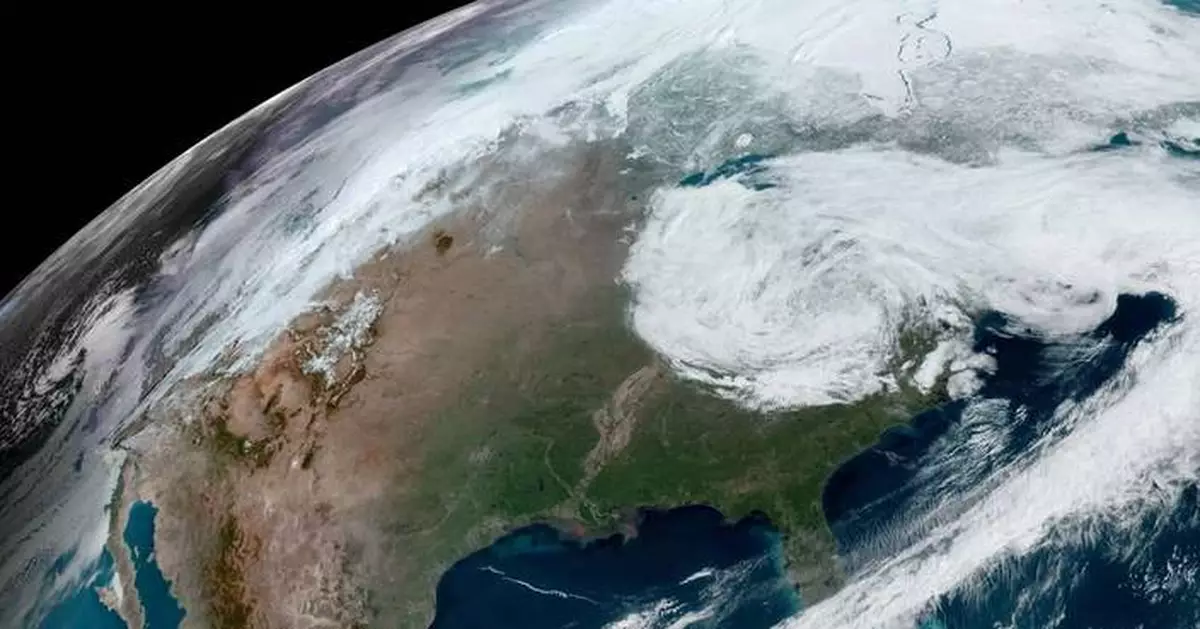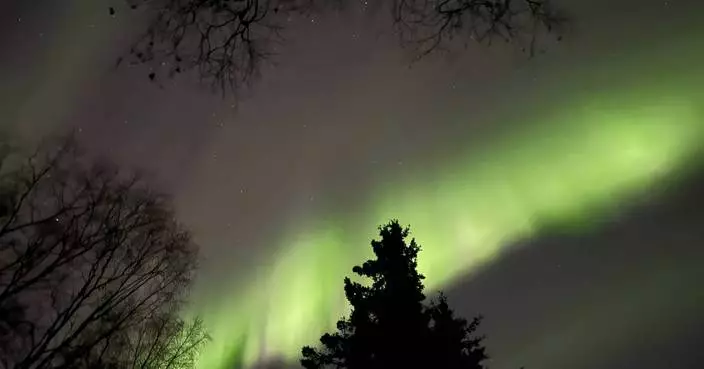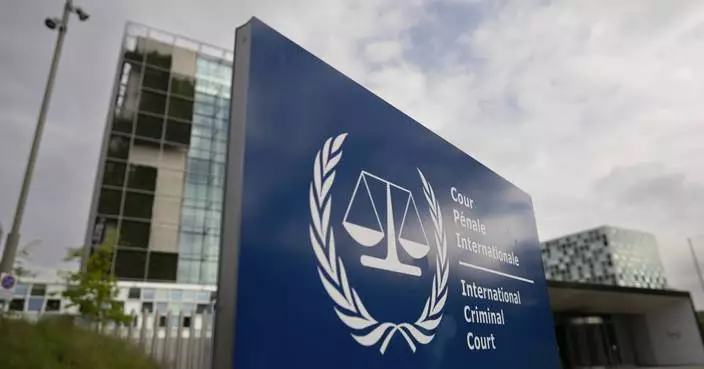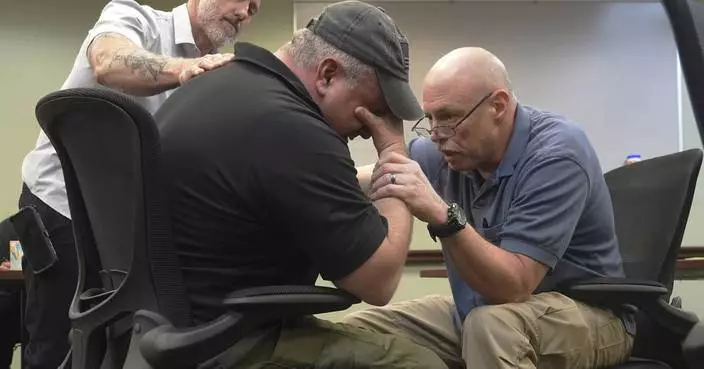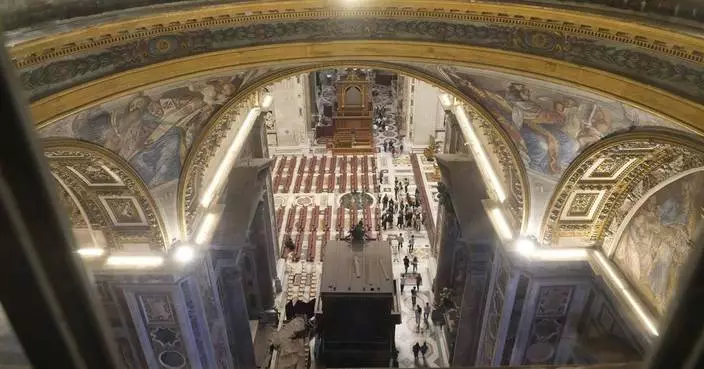If you’re in Vermont, Maine and Canada, you’re in luck. But for the rest of the path of Monday’s total solar eclipse, it could be dicey weather-wise.
Clouds are forecast for much of the eclipse route through the U.S. with some possible patches of clear skies in some spots, according to the latest forecast from the National Weather Service.
Northern New England into Canada is still the best bet to witness the eclipse, when the moon blocks out the sun for a few minutes and day turns into night.
Texas is likely to have the heaviest cloud cover. More concerning, the weather service is forecasting severe weather — tornadoes and hail — about the time of the eclipse for parts of Texas, Oklahoma, Arkansas and Louisiana.
The forecast for the eclipse path has been fairly consistent for the past 10 days, said David Roth, a meteorologist with the weather service.
“Things aren't moving that fast,” he said Sunday.
The path of total darkness stretches from Mexico and Texas through Maine and parts of Canada.
At the Great Lakes Science Center in Cleveland on Sunday, weather service meteorologist Alexa Maines tried to reassure visitors that all was not lost. A warm front was due to bring in clouds Monday morning, but they could clear out by eclipse time. “Cloud cover is one of the trickiest things to forecast,” she said.
Eclipse weather expert Jay Anderson also thinks the eclipse could be visible from Dallas to Columbus through thin, high clouds. “Not the best conditions but tolerable,” Anderson, a retired Canadian meteorologist, said via email.
“South of Dallas, there is a lot of low cloud that will disappoint a lot of eclipse enthusiasts,” he said.
You can still watch the total solar eclipse online.
Associated Press journalists will also bring live coverage of the eclipse from across the path, starting at 10 a.m. EDT with views from Mazatlán, Mexico, and other locations.
NASA will stream telescope views of the sun and on NASA TV starting at 1 p.m. EDT.
The Exploratorium museum, Time and Date and Slooh will also broadcast eclipse day views.
AP reporter Adithi Ramakrishnan contributed to this report.
The Associated Press Health and Science Department receives support from the Howard Hughes Medical Institute’s Science and Educational Media Group. The AP is solely responsible for all content.
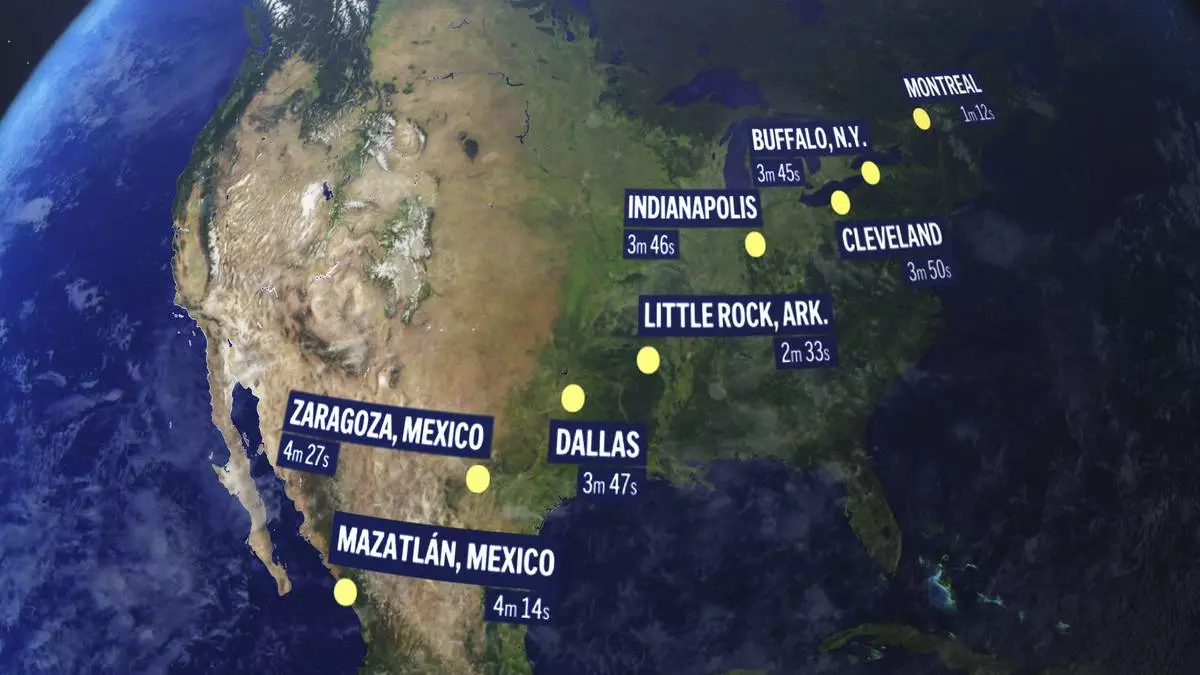
FILE - A total solar eclipse April 8 will enter over Mexico's Pacific coast, dash up through Texas and Oklahoma, crisscross the Midwest, Mid-Atlantic and New England, before exiting over eastern Canada into the Atlantic. (AP Photo, File)
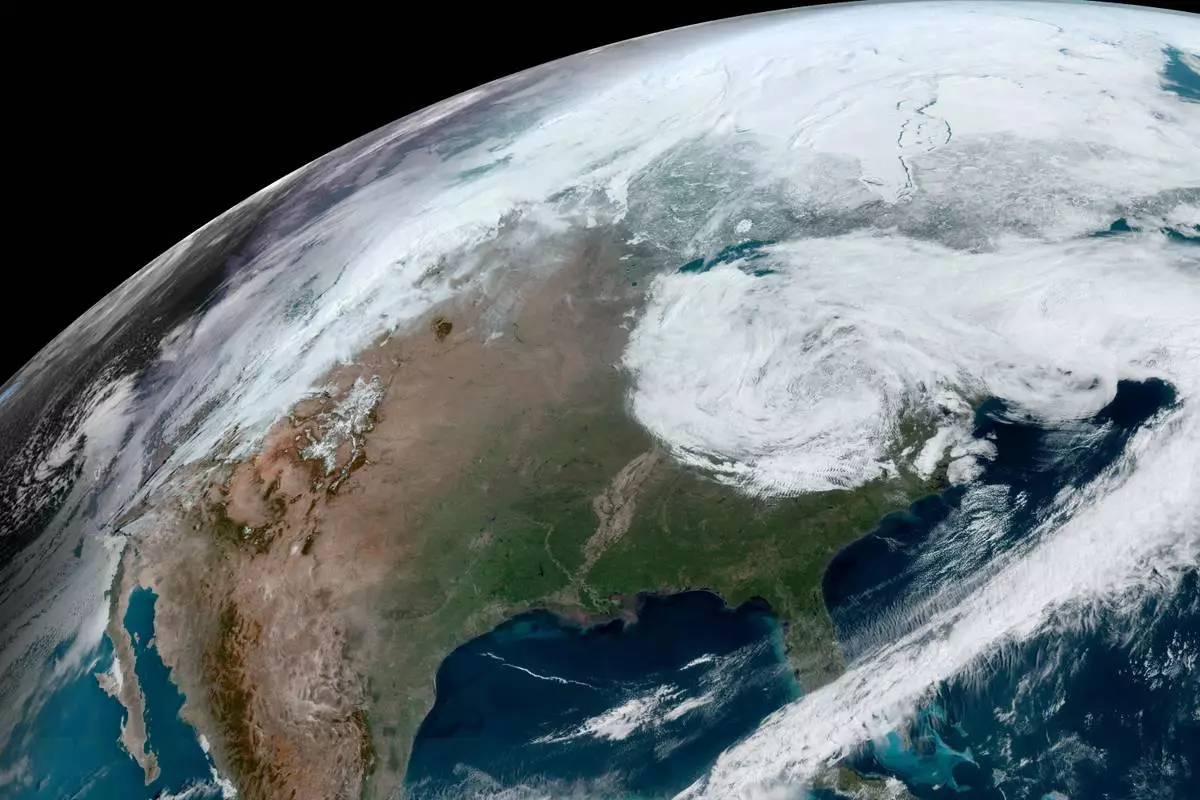
This satellite image provided by NOAA shows clouds over North America on Thursday, April 4, 2024. (NOAA via AP)
DANIA BEACH, Florida (AP) — Border Patrol agents are tasked with enforcing hotly contested immigration policies as many Americans at both ends of the political spectrum look askance at the border — and the agents.
That's taking a mounting toll, so the agency is training more among its ranks to become chaplains and provide spiritual care for their fellow agents on and off the job.
“That’s a really hard thing to deal with, as things tend to flip from one side to the other, and we’re still in the crossfire,” said Border Patrol assistant chief and chaplaincy program manager Spencer Hatch.
Unlike the police or military, which recruit faith leaders to serve as chaplains, the Border Patrol trains mostly lay agents endorsed by their faith denominations to become chaplains through a 2.5 week academy.
Their numbers have grown to about 240 from 130 four years ago. Three times a year, an academy is held at a different Border Patrol station. About a dozen Border Patrol personnel, plus a few Fish and Wildlife Service and Bureau of Land Management officers, graduated from the most recent academy, held near Miami earlier this month.
The program, and a nonreligious, mental-health focused peer support program, were started by grassroots efforts in the 1990s. Chaplains stay in their regular jobs, but are on call to assist.
Border Patrol agents say they're motivated by the desire to protect U.S. borders from security threats, including the powerful cartels that control much of the border dynamics. They also often rescue migrants lost and dying in the harsh deserts that line the southern U.S. border.
But many agents feel the American public sees them as obstacles to migrants seeking a better life in the United States. They often tell their children to say their parent does “government work” for fear of reprisals, especially in the border communities where they live.
That dissonance between upholding a duty they feel proud of, and getting called “terrible names” for it, adds an emotional toll to the already dangerous, often isolating work the agents do.
That's where the chaplains come in — to help their fellow 20,000 agents cope and prevent the trauma from degenerating into family crises, addiction or even suicide.
While most chaplains are Christian, with a smattering of Muslim and Jewish agents, they don’t offer faith-specific worship and only bring up religion if the person they’re helping does first.
Rather, they are a comforting presence during critical moments like assisting a suicidal colleague, notifying a family their loved one was killed on the job, and counseling those dealing with addiction, survivor guilt and other traumas.
Those are the scenarios that chaplains-in-training practice role-playing at the academy. They also learn about communication and family dynamics, because constant redeployments — some up to 9 times over 18 months during the record border crossings early in the Biden administration — affect their families too.
Hatch teaches about the need to maintain both the “hypervigilance” of law enforcement and the humanitarian instinct to empathize with fellow agents as well as migrants.
Many agents say they are especially affected by the plight of migrant children at the hands of smugglers.
“One tries to give them support within the limits of what your work allows. I always have the biggest smile,” said a newly minted chaplain, Yaira Santiago, a former schoolteacher who runs a Border Patrol migrant processing center in Southern California.
By relying on their faith, their commitment to help their colleagues, and their training, chaplains can make a difference.
"Even in moments of uncertainty, your presence is often enough,” said Matt Kiniery, an agent in El Paso, Texas, for 15 years and a graduate of the latest chaplain academy.
Associated Press religion coverage receives support through the AP’s collaboration with The Conversation US, with funding from Lilly Endowment Inc. The AP is solely responsible for this content.
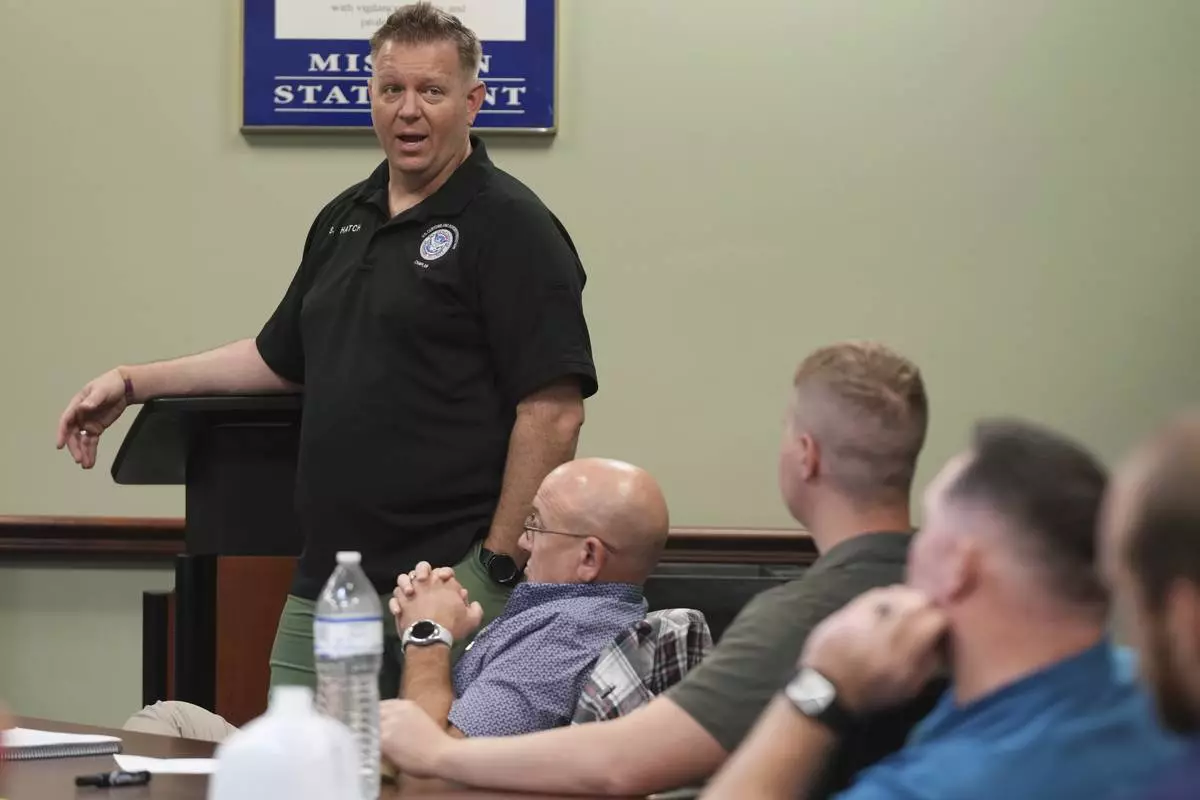
Border Patrol Chaplaincy program manager Spencer Hatch teaches during the Border Patrol Chaplain Academy class, Wednesday, Nov. 20, 2024, in Dania Beach, Fla. (AP Photo/Marta Lavandier)




